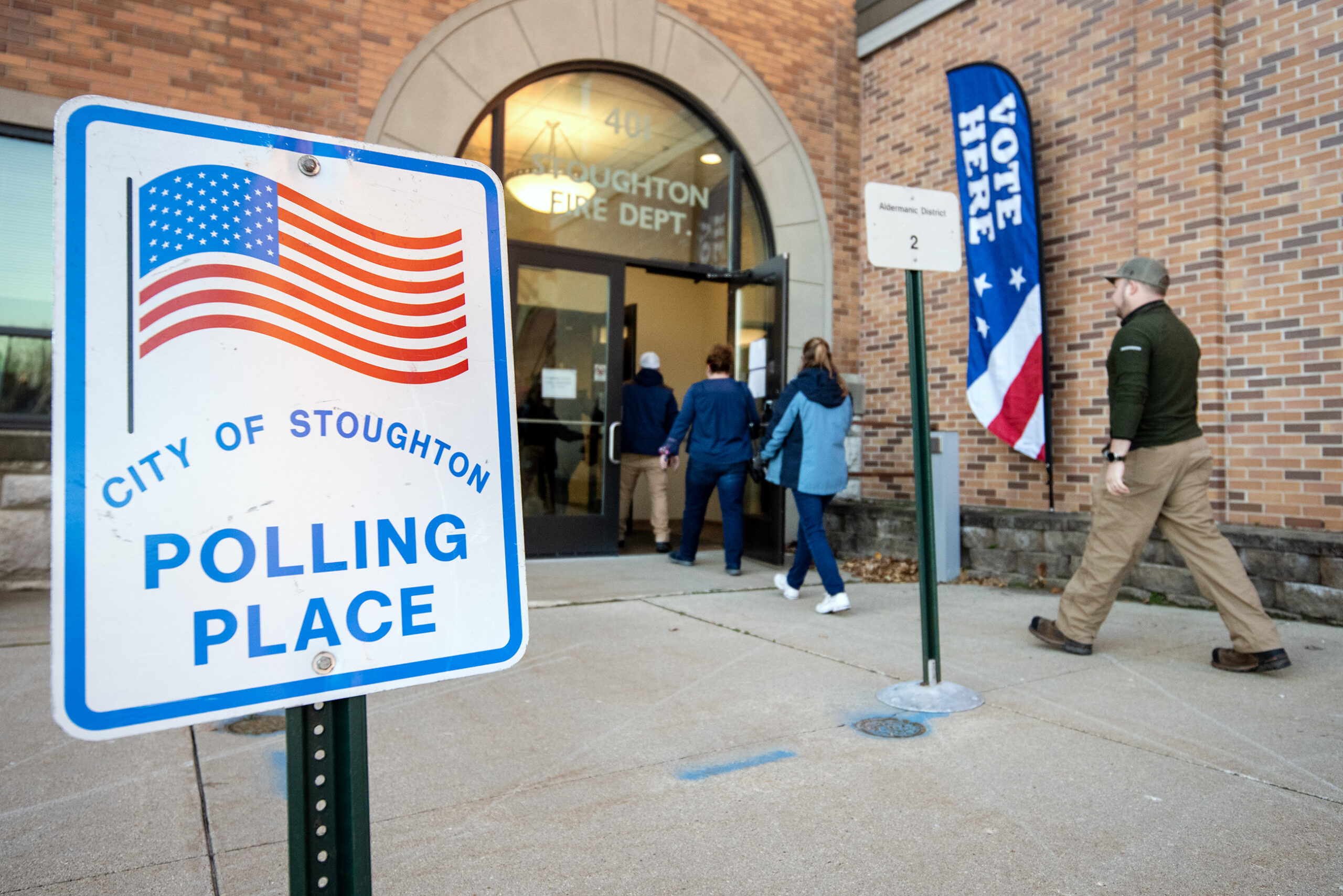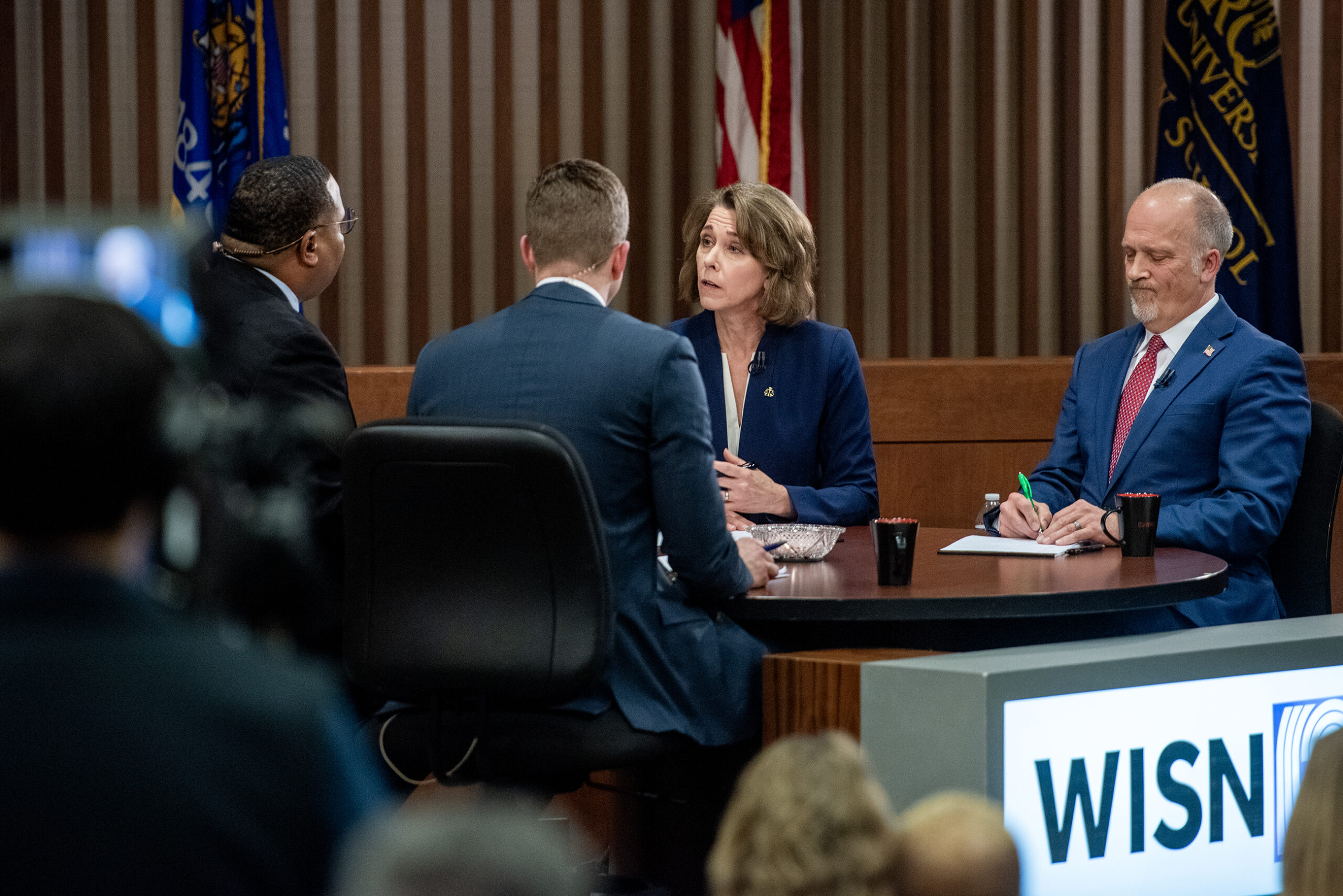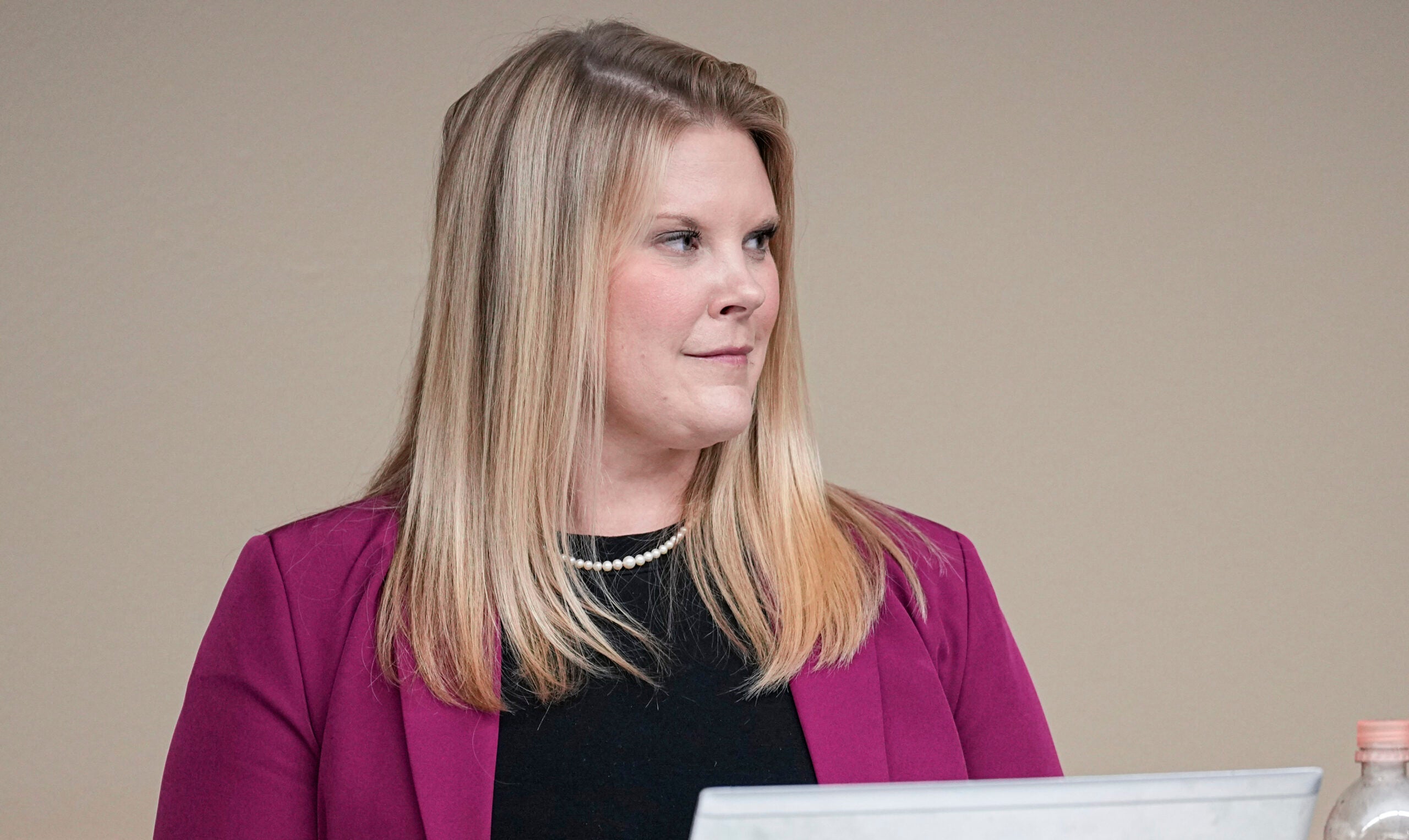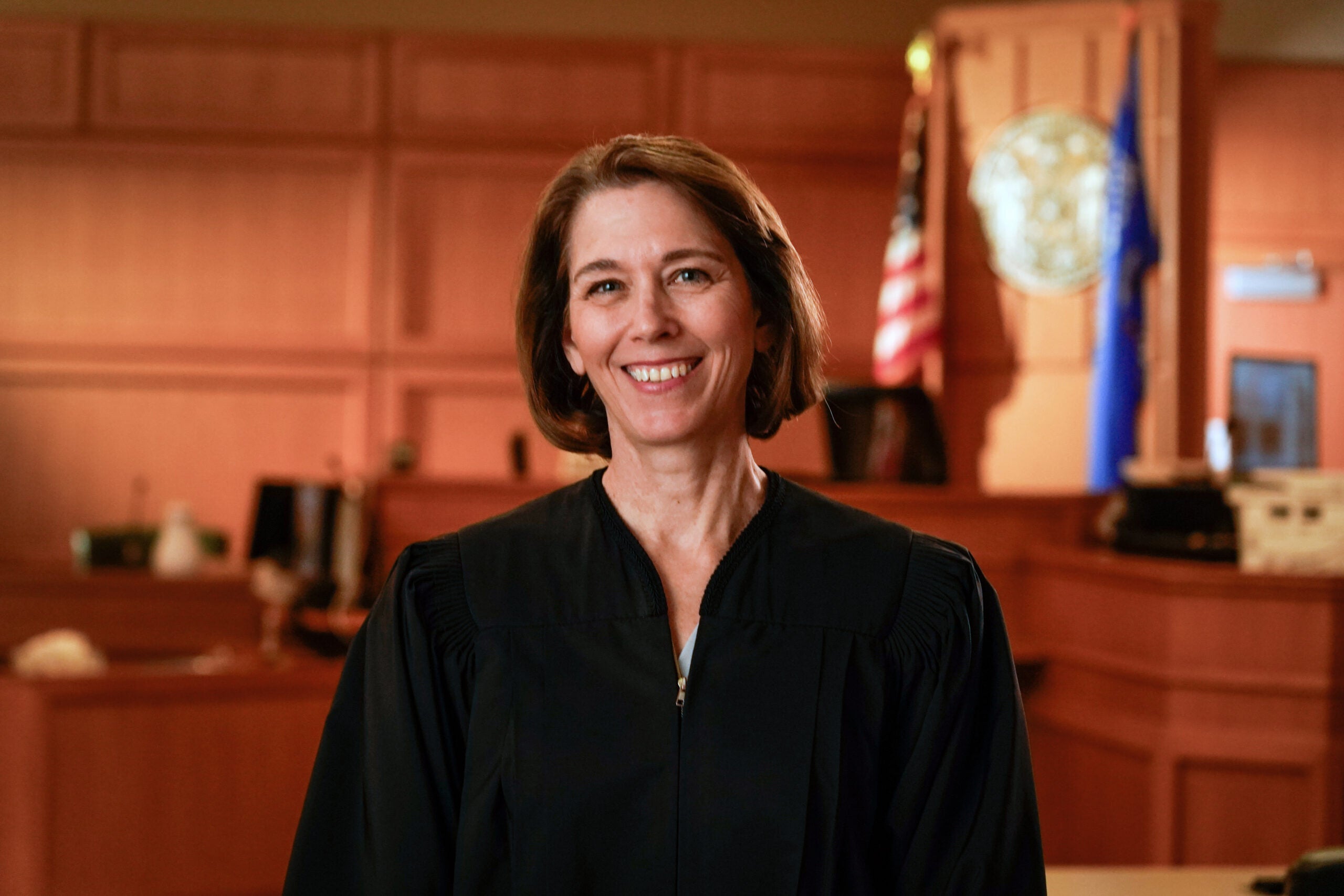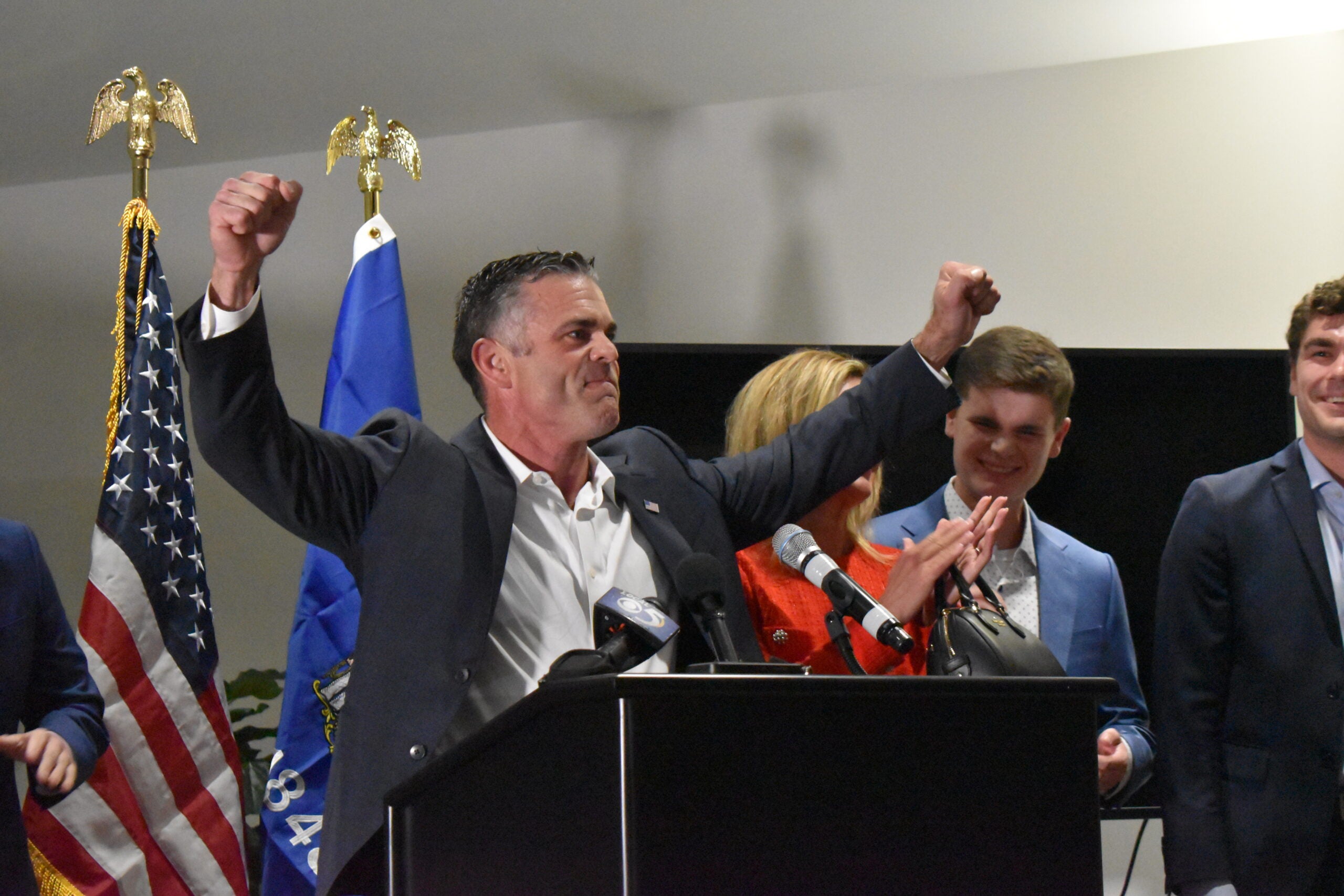Gov. Tony Evers has called a two special elections to fill vacant U.S. House and state Senate seats this year, but each comes with a twist.
The election for the 4th Senate District would be the first one held under a new legislative redistricting plan signed by Evers, and voters in the 8th Congressional District could see the same set of candidates appear twice on their ballot on Election Day.
The state Senate election will replace longtime Democratic state Sen. Lena Taylor, who resigned after the governor appointed her to the Milwaukee County Circuit Court in late January.
The general election for the seat is scheduled for July 30. Candidates have until June 4 to turn in nomination papers.
State Reps. LaKeshia Myers, D-Milwaukee, and Dora Drake, D-Milwaukee, have announced plans to run for the Senate seat, which would set up a primary election for July 2.
Stay informed on the latest news
Sign up for WPR’s email newsletter.
Prior to Evers’ Tuesday order scheduling the contest, there had been some question over whether any special election should be held under the new maps or the old one which was struck down by the state Supreme Court as unconstitutional. The bill that created the maps includes language specifying that it applies to special or recall elections contested “concurrently with the 2024 general election.”
The Wisconsin Elections Commission had asked the state Supreme Court to weigh in on the issue, but the court declined.
“From a legal standpoint, it’s still a little bit complicated,” said attorney Bryna Godar of the University of Wisconsin Law School’s State Democracy Research Initiative.
While the new legislative maps made dramatic changes to legislative districts elsewhere in the state, they didn’t make any changes to the 4th Senate District.
Godar said if no one files a lawsuit challenging Evers’ decision to use the new maps for the July special election, “this will just go ahead, as planned.”
“The only situation where this is going to be a problem is if somebody decides to challenge this decision,” Godar said. “And if somebody does challenge his decision to hold the special election in the new district, then this will just end up back in the courts.”
Rep. LaKeshia Myers, D-Milwaukee, told WPR she’s been prepared for Evers to call a special election for the Senate seat.
“We didn’t know that it will be called in this fashion, being so quick and in the middle of the general election cycle. But nevertheless, here we are,” Myers said.
Rep. Dora Drake, D-Milwaukee, told WPR she suspects the redistricting lawsuit and February push to pass new maps is why the special Senate election wasn’t announced until now. She said she has some concerns about making sure voters have enough time to learn about the candidates and issues in the race amid a compressed timeline.
“But I want to make sure to that I’m gonna do my own due diligence of sharing the values that I have, not just for the district, but the vision for what it means to have a stronger, and safer for community,” Drake said.
Both women are part of the Wisconsin Legislative Black Caucus, which cited concerns about whether the new maps violate the Voting Rights Act. Myers and Drake said the caucus is still examining that.
Voters in 8th Congressional District special election will see same candidates twice on same ballot
A second executive order from Evers scheduled the special election for Wisconsin’s 8th Congressional District on Nov. 5, the same day as the general election.
The seat was held by Republican U.S. Rep. Mike Gallagher, who resigned April 20, after he faced opposition from members of his own party for voting against impeaching Homeland Security Secretary Alejandro Mayorkas.
If Gallagher had resigned before April 9, the special election could have been held any time. Because he left office afterwards, state law requires the special primary election to be held concurrently with Wisconsin’s Aug. 13 partisan primary and the special general election to be held Nov. 5.
That means that candidates for the 8th District — both the special election and the general election — will appear on the same ballot, according to the Evers’ office.
State Sen. Andre Jacque, R-DePere, former state Sen. Roger Roth of Appleton and Green Bay businessman Tony Wied are all campaigning for Gallagher’s old seat on the GOP side. Kristin Lyerly, an OB-GYN, is running for Democrats.
According to the Wisconsin Legislative Reference Bureau, there have been at least three “instances of a separate simultaneous special election to fill a congressional vacancy and a general election for the same seat.” That happened in 1894, 1918 and 1931, according to the LRB.
Political scientist Mordecai Lee, an emeritus professor at the University of Wisconsin-Milwaukee, told WPR it might not “seem very logical, but there’s sort of a simple explanation.” He says Congress is a full time institution, and it’s possible there would be votes floor votes in November and December.
“It would be a good idea for Northeast Wisconsin, to have a voice in that,” Lee said.
Theoretically, it’s possible that one two different people could win the Nov. 5 special and general elections, but Lee said he doesn’t think it’s likely.
“I think the most important thing is if an election clerk for the congressional district can keep reminding people that they’re voting on two different elections for the congressional seat,” Lee said.
Wisconsin Public Radio, © Copyright 2025, Board of Regents of the University of Wisconsin System and Wisconsin Educational Communications Board.

